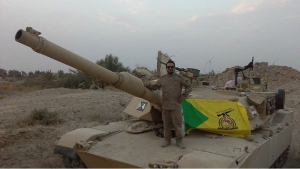Iran needs this more than US. The sanctions hurt them. If there is an agreement, they will get out of sanctions much faster than if they simply wait for sanctions to erode or collapse.
What does the US get? The US is not getting a non-nuclear Iran. At best, we get an Iran that, for a decade will not quite be a nuclear weapon state.
Presumably, the American strategy is something like this: We hope to delay Iran’s nuclear weapons capability while we expect Iran will evolve into a more responsible international actor. Underlying this thought is that the preponderance of the Iranian population is youthful, on-line and will be less radical when they gradually assume positions of power in the government.
Maybe this is the best we can do.
But, don’t believe that this agreement provides anything more than fair chance of preventing Iran from edging forward on a nuclear weapons program. The inspection regime that seems to be emerging, while better than nothing, is by no means rigorous.
Indeed, the mechanism may be deeply flawed depending on how some key issues are addressed:
1. Will Iran come clean on its previous work on the design and testing of a nuclear weapon? If not, then they clearly have not given up their weapons ambitions. In fact, it appears we have given up on trying to get them to truly give up weapons aspirations.
2. How robust will inspections be? Can they deter cheating? For example can IAEA inspect (not just visit) a wide range of sites, have access to staff, take samples, etc. Watch the language agreed on these points. “Managed access” to a military site does not equal an inspection.
3. Is there a sensitive hair trigger for the re-imposition of sanctions? This is hard to imagine at this point. Moreover, whose finger is on the trigger? The Director General of the IAEA? If so, what magnitude violation by Iran will suffice to renew sanctions? Will the Russians, Chinese, and everyone else be required to agree? If there is some dispute resolution process, how long will that take and will Putin have a veto?
4. How can we be sure this will be sustained over time? Drawing on the experience in Iraq, the consensus in the Security Council will inevitably erode. Three or four years from now, Iran can be pretty confident that the will of the Security Council will have diminished.
The Regime in Washington will change before the Regime in Tehran.
At this point, why rush to meet an artificial deadline? The US can afford to take time to press for a strong resolution of these points.
If Iran walks away, that may be a good outcome. Sanctions will remain. (In my opinion, this might be the best outcome)
Open question is: Where does this fit in overall US strategy towards Iran and the region? I have not seen any clear exposition of this. The West has already conceded a huge point to Iran, ie. it can be a “virtual” nuclear weapons state and that is ok. What else can Iran do? Control most of Iraq? Continue to undermine US friends in the region? Have we opted to align with a future Iran that we hope will be less antagonistic at the expense of current friends in the region?
Washington will no doubt have a story on all this whenever a nuclear agreement is rolled out. But will it be credible and will it be sustainable over more than two years?
